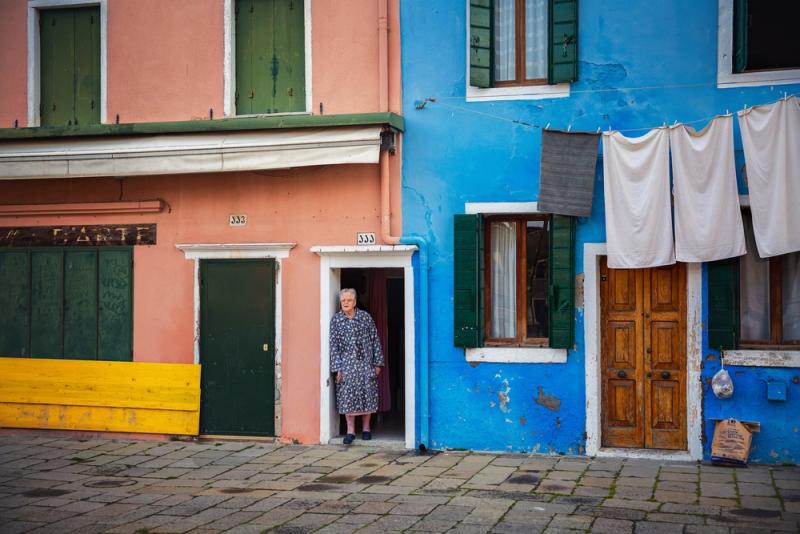Until recently, only men were able to transfer their Italian citizenship to their descendants, due to a century-old law that effectively stipulated that having an Italian mother or grandmother wasn’t enough. But over the 2021-2022 period, a long-overdue review of the rules led to significant changes, giving hope for many looking to gain citizenship through descent. Here’s how the shifted rulings could affect your chances of getting citizenship in Italy.
The Italian Citizenship law of 1912 had long been criticized for its gender discriminatory provisions, which favored men in transferring Italian citizenship to their children. Under this law, only Italian men could pass on their citizenship to their offspring, both born in Italy and abroad, provided they were citizens at the time of their children's birth. Italian-born women (and women who held Italian citizenship but were born abroad) were unjustly deprived of this right.
Moreover, women who married non-Italian men before 1948 faced the automatic loss of their Italian citizenship. But a landmark trial case in 2009 initiated a transformative shift in Italian courts, challenging these discriminatory practices and opening the door for Italian women to claim their right to citizenship.
What changes to Italian citizenship law mean for women and their descendants

For decades, Italian women faced inequality when trying to pass citizenship on to their children. Their male counterparts held a privileged position under the 1912 Italian Citizenship law, perpetuating a clear gender bias. This discrepancy only began to be rectified with the creation of the Italian constitution, which emphasized equal rights for men and women. Yet, even after the constitution, women could only pass on citizenship to children who were born after January 1, 1948.
The discriminatory laws had significant implications for Italian women and their descendants. Women who were Italian citizens but married non-Italian men before 1948 lost their citizenship automatically. Similarly, Italian consulates denied citizenship applications in cases where Italian-born female ancestors or female ancestors born abroad had children born before 1948. This systemic discrimination persisted until a groundbreaking legal precedent in 2009 provided hope for change.
A turning point: legal precedents challenge discrimination
The landmark 2009 trial case challenged the above situations as unjust, questioning the practices embedded in the Italian Citizenship law. As a result, the ICA (Italian Citizenship Assistance) organization is confident that those applicants who have a case falling in one of the above categories now have very good chances of succeeding in obtaining Italian citizenship due to the precedent established in 2009 in Italian courts and the many winning cases that followed.
The 2009 court ruling set a powerful precedent, sparking a wave of similar cases that challenged the status quo. Italian courts began applying the principles outlined in the 1948 Italian constitution, including gender equality, retroactively to events that occurred before the constitution's issuance. Consequently, women who were previously denied the right to pass on Italian citizenship to their children now had a legal basis to claim their entitlement.
New hope for Italian citizenship applicants

With the establishment of the 2009 precedent and subsequent rulings, the probability of obtaining Italian citizenship through the courts dramatically increased. Those falling into the categories of Italian-born women, women born abroad with Italian citizenship, and women who lost citizenship due to marriage to non-Italian men prior to 1948 now have a genuine chance of success in their citizenship applications.
To further promote justice, the Italian government passed a law on November 26, 2021, which took effect on December 24, 2021, and was implementable from June 22, 2022. This new law allowed lawsuits to be filed in courts that covered the jurisdiction of the Italian father, mother, or ancestor's municipality, even when the petitioner resided abroad. It granted other courts, aside from the Court of Rome, the authority to handle 1948 citizenship cases, making justice more accessible to applicants.
How ICA can help you apply for Italian citizenship by descent
Italian Citizenship Assistance (ICA) is a well-reputed choice for people of Italian descent seeking information and assistance with Italian citizenship Jure Sanguinis (by descent). ICA also helps people apply for Italian citizenship Jure matrimonii (by marriage) and by residency, and in light of these new legal developments are now helping the descendants of women to gain citizenship.
The application process can be carried out in various ways, both in Italy or in your home country. ICA offers a wide range of services, always with the core aim of providing their clients with comprehensive, worry-free assistance throughout the whole application process in the US or in Italy.
If you are interested in determining your eligibility to apply for Italian citizenship by descent you may be interested to know that the team at ICA will offer a free preliminary assessment of your case, which is completely free of charge and obligation. For more information about ICA, visit the organization’s website or contact info@italiancitizenshipassistance.com.













